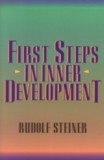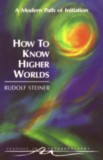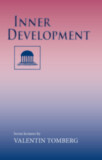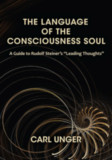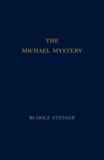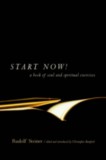The Effects of Esoteric Development
(CW 145)
- Publisher
SteinerBooks - Published
1st April 1997 - ISBN 9780880104203
- Language English
- Pages 224 pp.
- Size 5.5" x 8.5"
10 lectures at The Hague, March 20–29, 1913 (CW 145)
Address in Berlin, February 3, 1913
“The future of spiritual esoteric movements such as ours will depend more and more upon the realization that human spiritual development is necessary. Whoever rejects or is hostile toward spiritual development will thus have identified with what is no longer useful on Earth, with what is withered and shriveled, and will have abandoned cosmic evolution as willed by the gods.” —Rudolf Steiner
On February 3, 1913, the first General Meeting of the newly formed Anthroposophical Society was convened in Berlin. Six weeks later, in Holland, Rudolf Steiner spoke for the first time to an anthroposophic audience in a detailed, intimate way about individual esoteric training and the subtle effects of spiritual development on every level of one's being.
Beginning with questions regarding the body’s experience of food and drink—meat, coffee, alcohol, and so on—he lays out the progression of anthroposophic spiritual inner work, up to direct perception of “Paradise” and the Holy Grail. He discusses the role of human beings in our evolution that takes place between the forces of Lucifer and Ahriman.
Included is Steiner’s important lecture “The Being of Anthroposophy,” which this volume introduces to the English-speaking world. This edition also includes Steiner’s “introductory words,” previously available only as an unpublished German typescript.
The Effects of Esoteric Development is a translation from the German of Welche Bedeutung hat die okkulte Entwicklung des Menschen für seine Hüllen—physischen Leib, Ätherleib, Astralleib—und sein Selbst? (GA 145).
C O N T E N T S:
Introduction by Christopher Bamford
Prologue: “The Being of Anthroposophy” (Feb. 3, 1913)
1. “The Influences of Esoteric Life on the Human Sheaths”
2. “The Question of Food”
3. “The Senses and the Temperaments in Esoteric Training”
4. “The Differentiated Experience of the Etheric”
5. “Transforming Judgments, Feelings, and Willing”
6. “The Paradise Legend and the Holy Grail Legend”
7. “Astrality’s Struggle with Egoism—Amfortas and Parzifal”
8. “The Guardian of the Threshold—Cain and Abel”
9. “Centaur and Sphinx—Lucifer and Ahriman—Christ in the Etheric Sphere”
10. “The Etheric Body as a Picture of Cosmic History”
Rudolf Steiner
Rudolf Steiner (b. Rudolf Joseph Lorenz Steiner, 1861–1925) was born in the small village of Kraljevec, Austro-Hungarian Empire (now in Croatia), where he grew up. As a young man, he lived in Weimar and Berlin, where he became a well-published scientific, literary, and philosophical scholar, known especially for his work with Goethe’s scientific writings. Steiner termed his spiritual philosophy anthroposophy, meaning “wisdom of the human being.” As an exceptionally developed seer, he based his work on direct knowledge and perception of spiritual dimensions. He initiated a modern, universal “spiritual science” that is accessible to anyone willing to exercise clear and unbiased thinking. From his spiritual investigations, Steiner provided suggestions for the renewal of numerous activities, including education (general and for special needs), agriculture, medicine, economics, architecture, science, philosophy, Christianity, and the arts. There are currently thousands of schools, clinics, farms, and initiatives in other fields that involve practical work based on the principles Steiner developed. His many published works feature his research into the spiritual nature of human beings, the evolution of the world and humanity, and methods for personal development. He wrote some thirty books and delivered more than six thousand lectures throughout much of Europe. In 1924, Steiner founded the General Anthroposophical Society, which today has branches around the world.



